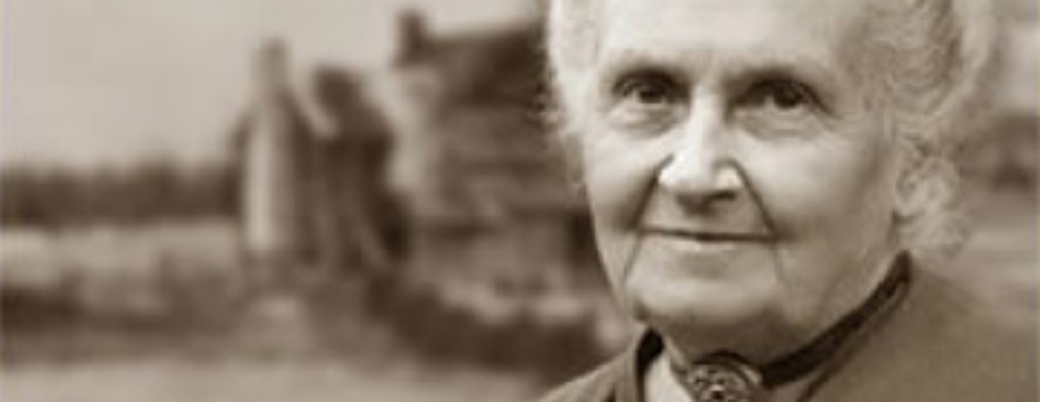
THE GENIUS OF MARIA MONTESSORI
……………………………………………………………………………………………………………………………………………
A Doctor, a Scientist, an Educational Visionary and a Champion for All Children.
“To aid life, leaving it free, however, to unfold itself, that is the basic task of the educator.” – Maria Montessori
Dr. Maria Montessori
Dr. Maria Montessori was an amazing individual and ahead of her time. She was an Italian physician, educator, and humanitarian, well known for her philosophy of education known as the Montessori Method. Her method is widely used in public and private schools throughout the world.
She was born on August 31, 1870, in the town of Chiaravalle, Italy. Her father was an official of the Ministry of Finance working in the local state-run tobacco factory. Her mother was also well educated, unusual for the times. Maria was encouraged by her parents, though her father did not agree with her wishes, to further her education.
Her family moved to Florence in 1873 and then to Rome in 1875 due to her father’s employment, where she entered the public school. At age thirteen she entered a secondary school. Not wishing to be limited by traditional female roles, she enrolled in an all boys technical school to become an engineer. She graduated in 1890.
She then decided to pursue a medical degree. Though the University of Rome rejected her application to medical school because she was a woman, she enrolled to earn a degree in natural sciences and graduated in 1892. With her persistence for academic excellence, she was finally allowed to enter the medical program. She was met with a lot of resistance from the male students and professors, but persevered and excelled. During her last two years she studied pediatrics and psychology, graduating in 1896. She was the first woman to graduate with a medical degree in Italy. She was a pioneer for the education of women.
Once she graduated she began working in the university’s psychiatric clinic. Her early medical practice focused on pediatric psychiatry where she observed children with mental retardation. She questioned the traditional methods used in teaching children who had developmental or mental disabilities.
Maria became an advocate for mentally disabled children, writing articles and fighting for the creation of specially designed classes and schools. She was appointed to the National League for the Protection of Retarded Children. The league then opened a special teacher training program and appointed her co-director. Maria was very scientific. She observed which teaching methods were successful. This is where she developed many of her methods and materials. The “uneducable” children in the model classroom made incredible progress and were able to pass the public exams. She spent the next few years continuing her research, writing articles, and lecturing.
She loved new challenges. She was interested to see how her methods worked with neurotypical children. In 1907 she was invited to open a child care center for low-income working parents in Rome. This became the first Casa Dei Bambini. There were 50 or so children enrolled and they were quite unruly, having been allowed to roam the streets without structure and supervision. They quickly settled in, showing interest in many of the materials Maria had brought in. With her method they became very successful students.
With her scientific observation and experience working with young children, she designed many materials and a beautiful classroom environment that nurtured the children’s natural love of learning. Her method gained much notoriety and Montessori schools opened all over the world. It was a huge success.
For the rest of her life, through war and peace, Maria dedicated herself to her research on child-centered education. She has lectured all over the world, written many articles and books, and developed teacher’s preparation programs in which she trained teachers in the Montessori Method.
Throughout her life’s work and that of many of her followers, the Montessori Method has been a remarkable success. There are now more than 22,000 Montessori schools throughout the world.
